SPECIAL REPORT: Which way will the Tories turn?
Either Jeremy Hunt or Boris Johnson will walk into Downing Street next month as our new prime minister. What would their impact be on issues of concern to the Jewish community?
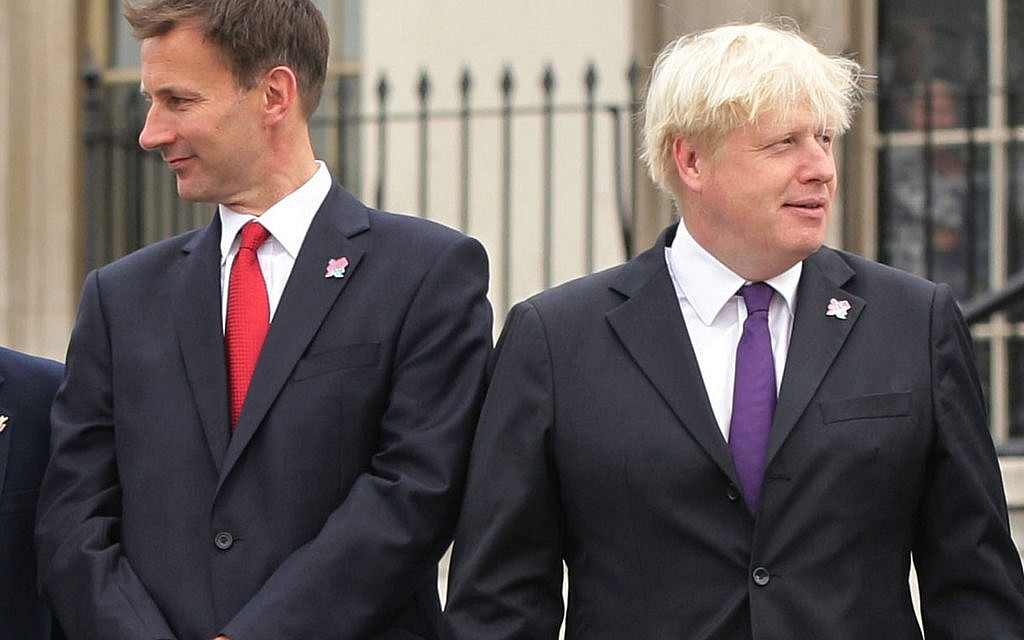
Jeremy Hunt has promised Boris Johnson “the fight of his life” as the two compete to become the next Conservative leader and PM. As the vote goes out to party members, political consultant Jodie Cohen looks at what a Prime Minister Johnson or a Prime Minister Hunt would mean for the UK Jewish community and relations with the Jewish state…
After an initial 13 candidates, multiple leadership debates, hustings, behind-the-scenes negotiations, schoolboy dirty tricks and five rounds of voting, we are finally down to the final two candidates for leader of the Conservative Party, the party of government. But just who are the candidates, and what would their impact be on issues of concern to the Jewish community?
Fact box – the final two
Boris Johnson MP was first elected to Parliament to represent the constituents of Henley back in 2001. In 2008, he gave up this seat to stand as Mayor of London, a position he held until returning to parliament in 2015, this time as the MP for Uxbridge and South Ruislip. Quick promotion followed, and he served as Foreign Secretary until 2018, when he resigned in protest at Theresa May’s handling of Brexit.
Get The Jewish News Daily Edition by email and never miss our top stories Free Sign Up
One of the best known MPs, Johnson’s earliest recorded ambition was to be ‘world king’. Despite being considered a ‘Marmite’ candidate, he has surged ahead of his opponents at every round of voting, and receiving the backing of 160 – more than half – of MPs in the final ballot. A recent ComRes poll suggested that Boris leading the Conservatives could lead to a landslide victory at the next General Election, with a majority of 140. Seen as the only Conservative who can stop Jeremy Corbyn becoming PM, 45% of Labour members fear him the most.
Meanwhile, Jeremy Hunt MP has been the Member of Parliament for South West Surrey since 2005. Immediately appointed a Shadow Minister and then a member of the Shadow Cabinet, he has consistently been in the Cabinet since the Conservatives returned to government. He has worked across different departments, most recently as Secretary of State for Health and Social Care, and currently as Foreign Secretary.
Jeremy Hunt received 77 votes in the final ballot of MPs, two more than his nearest opponent, Michael Gove. Hunt has been called ‘Theresa May in trousers’, and unlike Boris, he says the current departure date of 31 October is not a hard deadline. That’s why Boris was keen to face him in the final two, as he believes he contrasts strongly with the ‘continuity candidate’.
The candidates and community relations
Simon Johnson, chief executive of the Jewish Leadership Council, said “Both candidates have shown great support and friendship to the Jewish community. They have both acknowledged how important the Jewish community is to the life of this country. They have taken a strong position on all the issues of importance to us, including speaking up vocally against antisemitism, and in support of religious freedom and the protection of rights.”
Boris and Hunt have a solid record of defending the memory of the Holocaust and speaking out against antisemitism.
At a Conservative Friends of Israel reception in January 2019, Foreign Secretary Hunt emphasised that the UK “will always stand shoulder to shoulder with Israel in stamping out antisemitism”. He talked about the privilege he had of unveiling a statue of British Holocaust hero Frank Foley, stating that “if we don’t learn lessons, history will judge us very poorly indeed”.
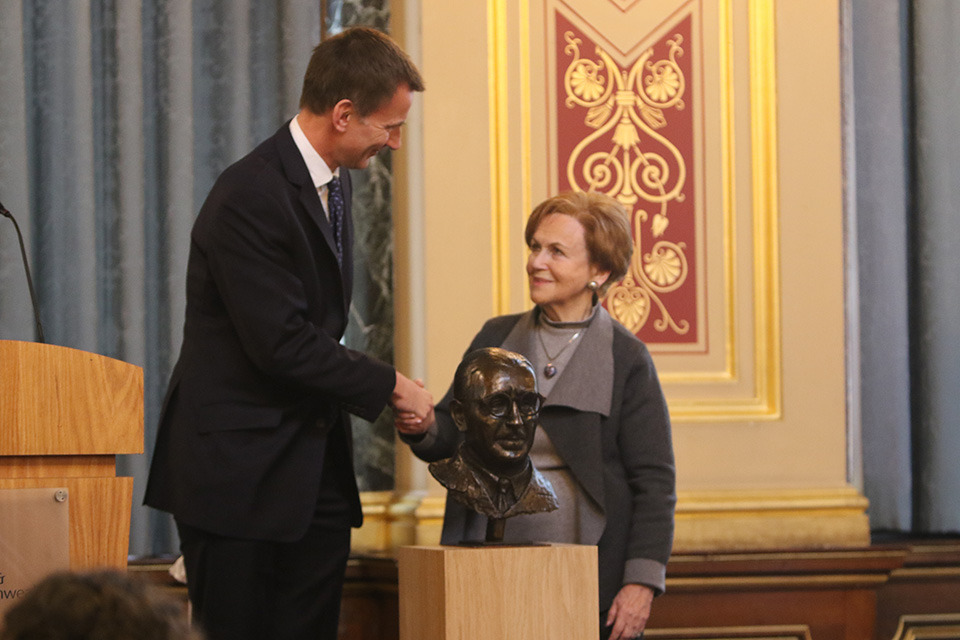
As Mayor of London, Boris signed the American Jewish Committee’s antisemitism pledge. In the week of Holocaust Memorial Day 2018, he wrote that “Even today, the truth about the Holocaust is distorted and sometimes denied. The most grotesque comparisons are drawn between Zionism and Nazism, including by public figures who should know better”. And in March 2018, when the community held its first public protest against antisemitism in the Labour party, Boris stated in Parliament that it is “absolutely vital for everybody in this House to send out a very clear message that antisemitism anywhere is intolerable”.
In the BBC leadership debate, Hunt talked about his three half-Chinese children and emphasised the need for Britain to remain “one of the most open, tolerant countries on the planet.” Meanwhile, Johnson has described himself as a “one-man melting pot” – with a combination of Jews, Muslims, and Christians as great-grandparents.
However, he has come under criticism for comments regarding burqas, which have been condemned by leading rabbis and figures in the Jewish as well as wider community.
In the BBC’s leadership debate, both candidates agreed to an external inquiry into Islamophobia in the party, and Labour will seek to capitalise on this.
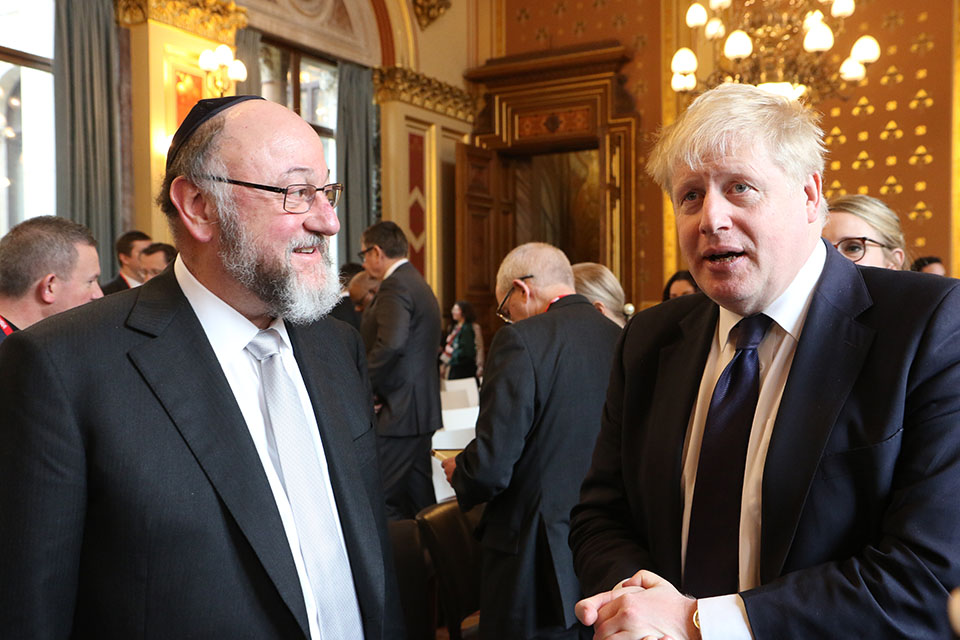
Where do they stand on Israel?
In March 2019, Foreign Secretary Hunt ‘saluted’ the German Bundestag for passing a law which equates the Boycott, Divestment and Sanctions (BDS) movement with antisemitism. Hunt tweeted: “Boycotting Israel – the world’s only Jewish state – is antisemitic.” And last month, when Gaza fired over 700 rockets at Israel, he tweeted that his thoughts were “with the families of innocent civilians killed and affected by Hamas’ indiscriminate and abhorrent rocket attacks.”
Furthermore, in March 2019 Hunt announced that Britain will now oppose every Item 7 resolution on the UNHRC’s agenda, which singles out Israel for debate. However, that doesn’t necessarily mean Britain will oppose all one-sided resolutions that don’t fall under Item 7. At the same meeting, the UK abstained on a report into last year’s violence on the Israel-Gaza border that had been submitted under a separate agenda item.
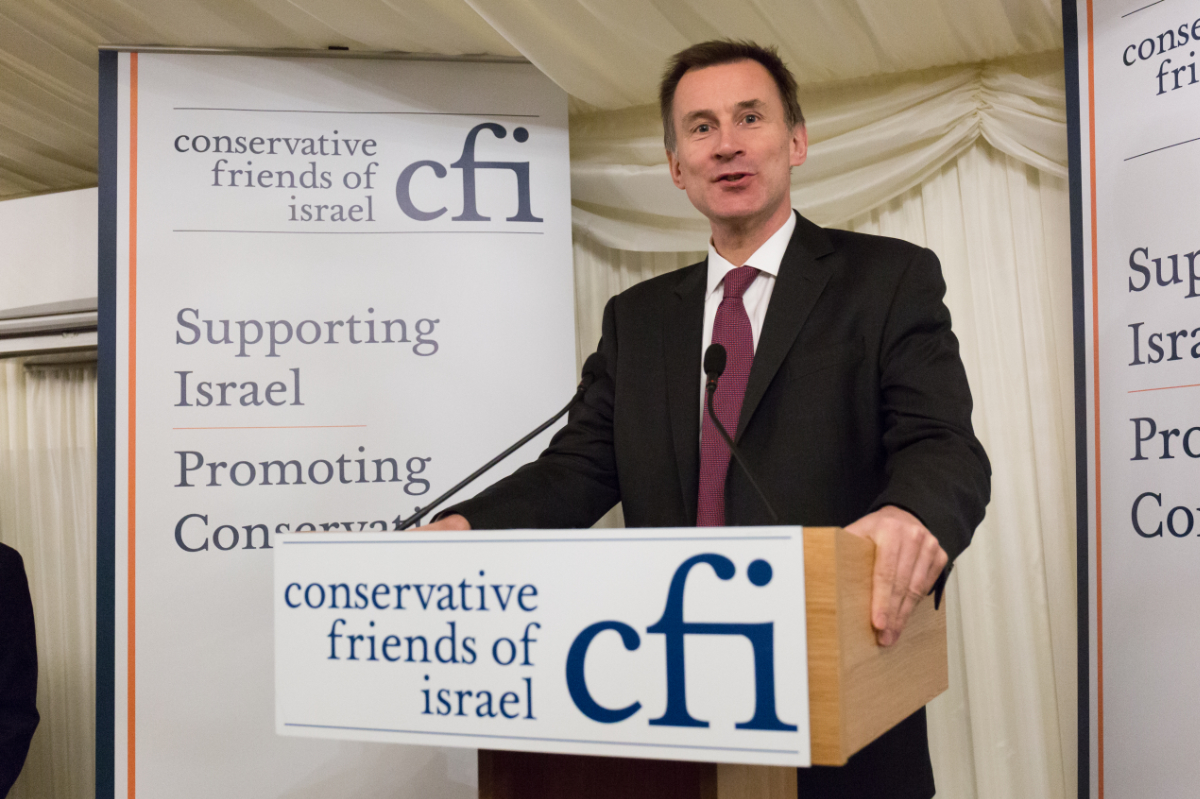
Meanwhile, Boris describes himself as an ex-kibbutznik, who spent most of his time washing up. At the Centenary celebrations of the Balfour Declaration, he said “I recognise the magic, the genius, and miracle of Israel.”
He has talked about the creation of Israel as being one of the greatest political triumphs of the 20th century, describing it as “a democracy, a liberal society, a beacon of hope and which shares the values in which I passionately believe.”
As Foreign Secretary, Boris condemned the UN Human Rights Council (UNHRC) for its disproportionate focus on Israel, which he said was “damaging to the cause of peace”. And as Mayor, his trade mission to Israel and dismissive remarks about boycotts led to a boycott of him in the West Bank.
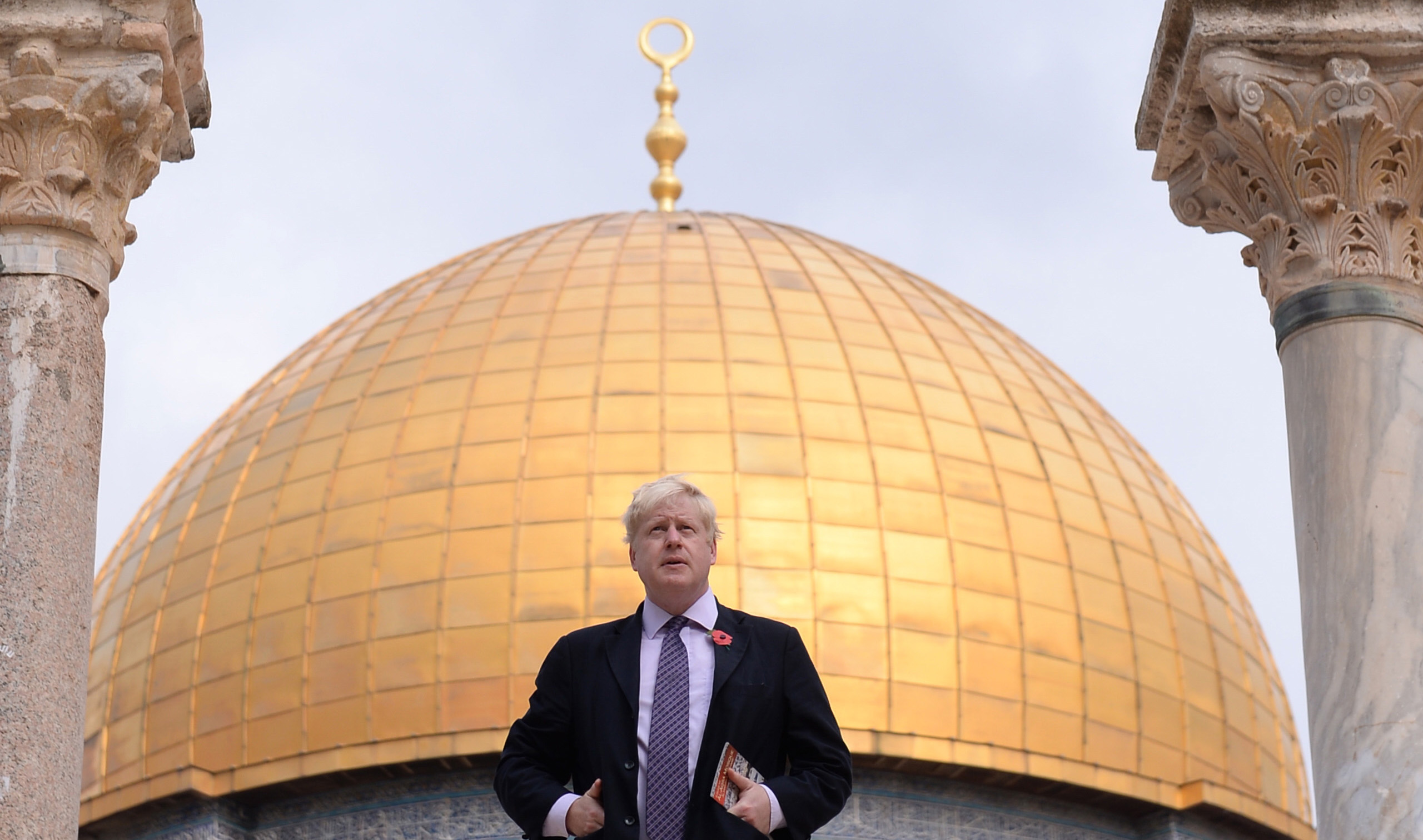
However, during the Gaza war, Boris described Israel’s response as “disproportionate, ugly and tragic.” In his book about Churchill, he writes about “the shameful way Israelis have treated Palestinians”, as well as the “generally woeful quality of Palestinian leadership”.
His friend of 30 years, journalist Tom Gross, says that on occasion Boris has “waxed and waned towards Israel”. However, he argues that Boris stood up for the Jewish state at the Oxford Union when he was a student, which was not always a popular thing to do, and as editor of The Spectator he published articles emphasising Israeli victims as well as Palestinian.
Commenting on the final two candidates, Lord Polak, Honorary President of Conservative Friends of Israel, said “the importance of building good and trusting relationships cannot be overstated, but a short examination of some actions by the candidates should give some comfort. Boris Johnson was responsible for ensuring that the first Royal visit to Israel took place, and Jeremy Hunt made it possible for the UK to finally proscribe Hezbollah in full.”
It will be revealing to see how a PM Johnson or Hunt differs from Foreign Secretary Johnson and Hunt.
Holding the reigns and freer from the shackles of the Foreign Office, who will they appoint as their Foreign Secretary? And how they will respond to the forthcoming US Peace Plan, as well as relations with Iran?
Challenges for the next PM
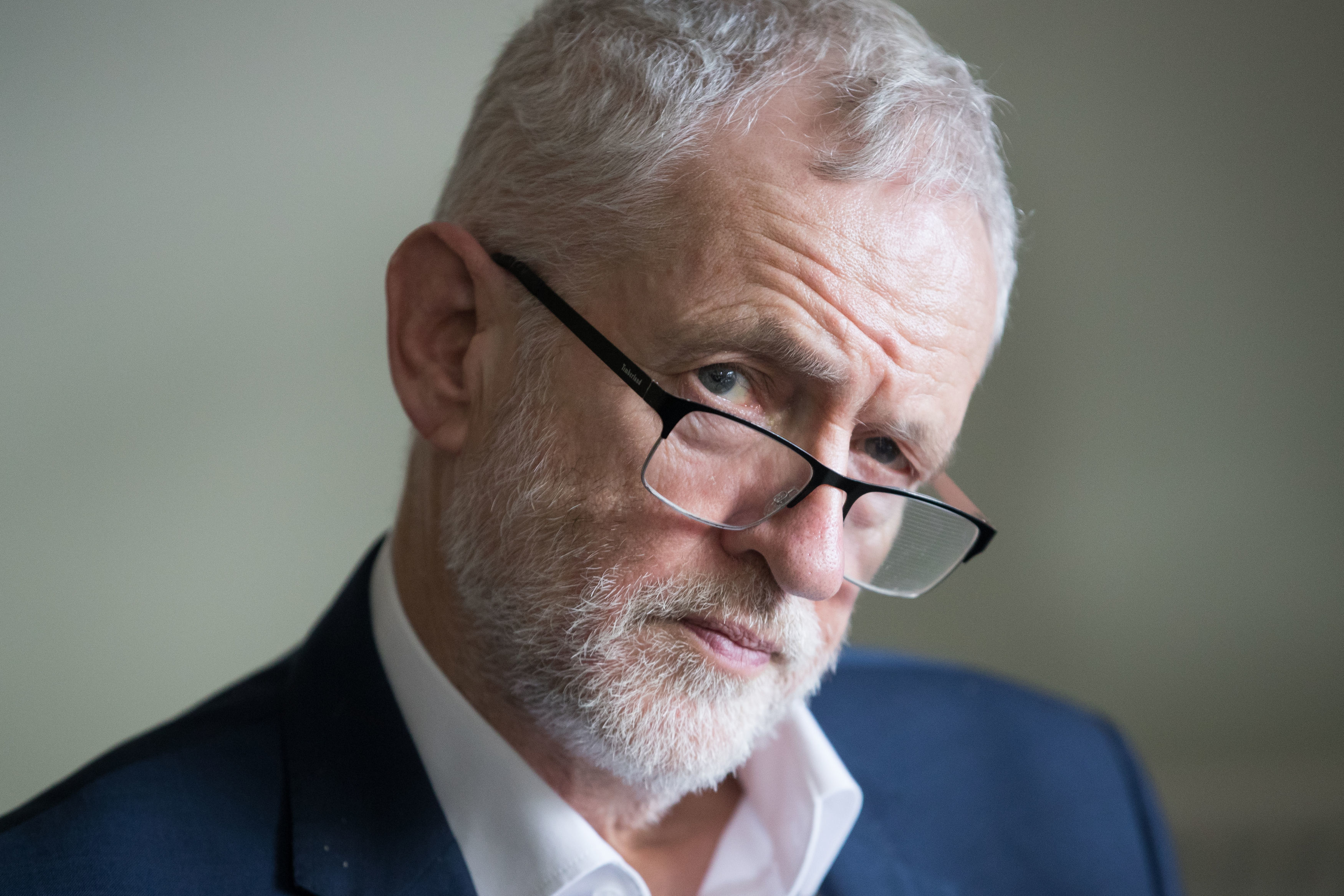
While community relations and relations with other countries will be of the utmost importance to the next prime minister, first on his mind will be the need to unite the party and country, and deliver Brexit. Sources in the Conservative Party say that a deal with Labour and Brussels over Brexit is closer than people think.
The new prime minister will also need to contend (or work) with Nigel Farage and his Brexit Party. And following Brexit, the biggest test will be to face Jeremy Corbyn at the next General Election, which must take place by 2022.
So, who will be Britain’s next prime minister? We’ll know in just a few weeks…
READ MORE:
- Boris Johnson: I’m prepared for sanctions over Iran’s nuclear madness
- EXCLUSIVE: Jeremy Hunt accuses Corbyn of ‘deeply-held prejudices’ against Jews
- OPINION – Sajid Javid: My profoundly moving trip to Israel was worth the wait

Thank you for helping to make Jewish News the leading source of news and opinion for the UK Jewish community. Today we're asking for your invaluable help to continue putting our community first in everything we do.
For as little as £5 a month you can help sustain the vital work we do in celebrating and standing up for Jewish life in Britain.
Jewish News holds our community together and keeps us connected. Like a synagogue, it’s where people turn to feel part of something bigger. It also proudly shows the rest of Britain the vibrancy and rich culture of modern Jewish life.
You can make a quick and easy one-off or monthly contribution of £5, £10, £20 or any other sum you’re comfortable with.
100% of your donation will help us continue celebrating our community, in all its dynamic diversity...
Engaging
Being a community platform means so much more than producing a newspaper and website. One of our proudest roles is media partnering with our invaluable charities to amplify the outstanding work they do to help us all.
Celebrating
There’s no shortage of oys in the world but Jewish News takes every opportunity to celebrate the joys too, through projects like Night of Heroes, 40 Under 40 and other compelling countdowns that make the community kvell with pride.
Pioneering
In the first collaboration between media outlets from different faiths, Jewish News worked with British Muslim TV and Church Times to produce a list of young activists leading the way on interfaith understanding.
Campaigning
Royal Mail issued a stamp honouring Holocaust hero Sir Nicholas Winton after a Jewish News campaign attracted more than 100,000 backers. Jewish Newsalso produces special editions of the paper highlighting pressing issues including mental health and Holocaust remembrance.
Easy access
In an age when news is readily accessible, Jewish News provides high-quality content free online and offline, removing any financial barriers to connecting people.
Voice of our community to wider society
The Jewish News team regularly appears on TV, radio and on the pages of the national press to comment on stories about the Jewish community. Easy access to the paper on the streets of London also means Jewish News provides an invaluable window into the community for the country at large.
We hope you agree all this is worth preserving.
- Jeremy Hunt
- Boris Johnson
- Conservative Party
- Conservatives
- ComRes
- South West Surrey
- Michael Gove
- simon johnson
- gaza
- UNHRC
- News
- News Features
- Features
- Jeremy Corbyn
- Tory leadership contest
- Boycott Divestment and Sanctions (BDS) Movement
- Jewish Leadership Council (JLC)
- Conservative Friends of Israel (cfi)
- Israel News
-
By Brigit Grant
-
By Laurent Vaughan - Senior Associate (Bishop & Sewell Solicitors)
-
By Laurent Vaughan - Senior Associate (Bishop & Sewell Solicitors)
-
By Laurent Vaughan - Senior Associate (Bishop & Sewell Solicitors)
-
By Laurent Vaughan - Senior Associate (Bishop & Sewell Solicitors)





















